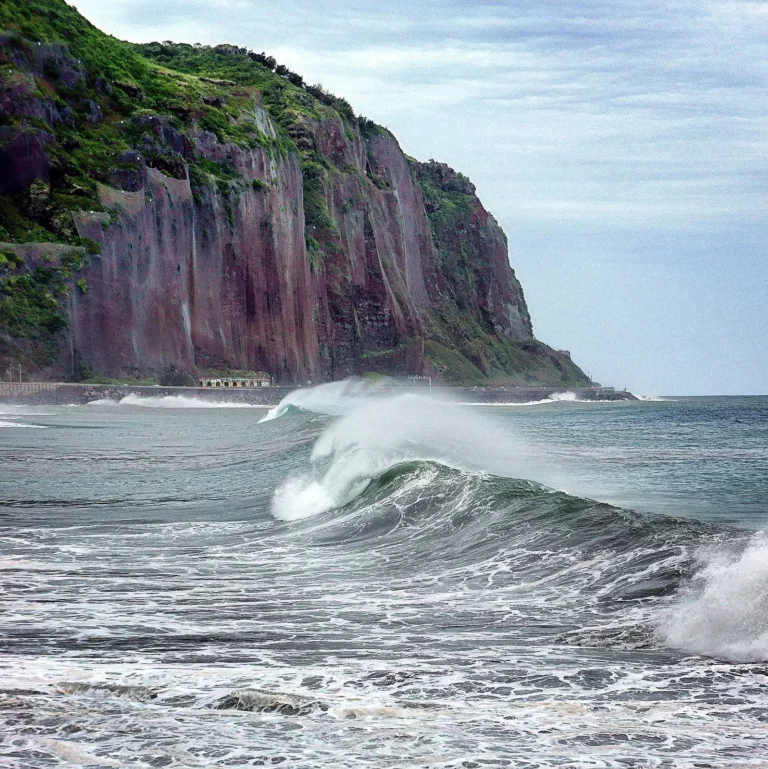After leaving my native Réunion Island after high school, I finally returned in 2017 for a period of several months. I had just spent the past two years in Canada in a pleasant flatshare reminiscent of The Spanish Apartment. Discussions with my roommates often centered on current events around the globe that—depending on our nationality—had more or less of a direct impact on our lives. Topics like the terrorist attacks in France, the Trump election in the U.S., and Brexit all came up at some point. The magnitude of these various issues, all of which marked the end of a long-idealized global world in their unique way, confronted us all with the same question: What is the most pressing, important issue for us to solve in today’s world? From there, we would all take turns diligently arguing our point of view.
Cécile, the most fervent ecologist of the group, often cited the environmental crisis as the most pressing issue. Although none of us denied the topic’s relevance—news reports about the Paris Agreement made sure of this—it still seemed like a secondary concern compared to wars, famines and other growing disparities across the globe. Couldn’t we just tackle that problem “later”?
Upon my return to Réunion Island, I realized that not only was the environmental crisis having an impact just as serious and prevalent as even the most devastating events happening in geopolitics, but that our idea of “later” might actually mean “too late.” Hidden behind the island’s dreamy, picture-perfect landscapes is a French territory suffering from poverty levels among the highest in the nation and experiencing the consequences of climate change.
I decided to do an internship at Temergie, a company specializing in energy transition. This is a critical subject for an island like the Réunion, which in spite of its potential for developing renewable energy continues to remain highly contingent on fossil fuels. My first day on the job, I learned that up until the beginning of the 1980s, the island had been self-dependent with its own energy resources.
This fact seemed impossible to me. I recalled the long traffic jams on the way to high school only a few years prior, followed by lively conversations we’d have over dinner about the number of cars on the road, the exploding gas prices, and the construction project for a train that would unite the north and west of the Island (a proposal eventually abandoned in favor of the erection of a causeway). Above all, it negated what we had learned in school: everything from the island’s dependency on fossil fuels that had steadily grown since the Industrial Revolution to its increased reliance on mainland France from WWII onward and even up to the 1970s oil crisis that seemed to have shaken the entire world…
It’s always difficult to imagine certain realities that we haven’t actually lived through. As a teenager, it often occurred to me that everything arrived late on Réunion Island. From the movies we’d see four months after their release in mainland France, to the songs that took longer to come out on Virgin streaming, or even to the back-to-school rushes where we’d flock to the few stores that had finally stocked up on Eastpak bags. It’s in large part due to the island’s insularity, but also to its economy heavily based on agriculture and tourism, that it was spared from the sudden rise in energy needs (and thus dependency on fossil fuels) happening on the mainland.
It’s a territory untouched by this turn of events but which, as is true in many other parts of the world, has sadly suffered some of the greatest impacts of human-provoked climate change. While the island’s population has nearly doubled since the 1980s, set to approach 1 million inhabitants by the end of this decade (and with the tertiary sector now dominating), the effects of global warming and its predicted outcomes are not reassuring. Increasingly powerful cyclones, long dry spells, intense heat waves and rising sea levels are predicted, all posing enormous challenges for the land.
Since my return to mainland France, these issues unfortunately remain on the periphery of public debate in Réunion Island.
It’s as if Réunion Island, though a French territory, was spared from the world’s tumults for a while. Then, just before the turn of the 21st century, all of these issues suddenly came to a boiling point.
As 4 in 10 inhabitants of the island live below the poverty line, the land’s economic precarity is what takes precedence in people’s minds.
In 2018, the Yellow Vest Movement particularly caught islanders’ attention. The “snail operation” and road blockades that brought certain mainland territories to a halt for months on end and episodes of violence all made French media headlines. But if this movement gained a following on the island, it’s because—just like in other overseas territories, rural and suburban, that feel disenfranchised by public authorities—there is a mindset that “more and more” is being demanded, when “too much” is already being expected.
And that’s because, behind IPCC data or the weatherman’s global warming meter, there are human beings. And among them, those most affected by climate change are faced with difficulties on multiple fronts, in addition to being under-represented and ignored.
A form of ecology rooted in our everyday lives has thus tentatively emerged in recent years. Féris Barkat, one of the co-founders of Banlieues Climat (“suburban climate”), a nonprofit that launched last year that aims to raise young people’s awareness about ecology in disadvantaged territories, has made this more democratic vision their focus. “It’s difficult to ask someone to practice self-restraint when they don’t have much to begin with. We need to educate people and explain that this topic concerns everyone, and that each person can do their part depending on the resources available to them,” he states.
Each time I’ve returned to Réunion Island since 2017, it has struck me that individual measures to protect the environment are still limited. That said, Naturalia and other organic retails have arrived, and there is more talk of recycling and sustainable transportation. Additionally, the part of the island home to lush biodiversity of native plant species has been named a UNESCO World Heritage Site.
Aside from the increase in certain social benefits promised by the government, on the social front, no structural proposals for tackling environmental issues have been made. Energy remains a central topic: electric bills, just like everywhere else, continue to climb, as the gap between those who can afford to install environmentally-friendly devices and those in homes that are low in energy efficiency grows.
Help us tell the world to you !
Frictions is launching its club : by supporting Frictions, you’ll be supporting a community of authors and journalists who tell the world through intimate stories!

And yet solutions to bridge this divide already exist. A variety of initiatives (mainly from the nonprofit sector), such as specialized centers for grassroots ecology—the one was created in Bobigny, Seine Saint Denis comes to mind—are attempting to promote a new kind of ecology. Their vision is of a popularized ecology that draws closer to individuals, with the belief that ecology has remained for too long in the hands of scientists and the most privileged sectors of the population. It’s an ecology that resides at the heart of urban planning in the most densely populated areas; an ecology financed by new kinds of taxation (as put forth by Lucas Chancel, an economics scholar); an ecology that operates on participatory models like the Convention Citoyenne (“citizen’s convention” for the climate). These are just a few of the elements of a necessary ecology that should be implemented before the issue falls into the hands of the most extreme, dishonest political parties.
As we approach COP28 UAE in a few weeks, set to make important agreements on the financing and costs of the ecological transition, let’s hope that the grassroots movement discussed above will gather enough momentum to reach the international stage, and that our collective divides will not put an additional burden on our individual energy bills.









